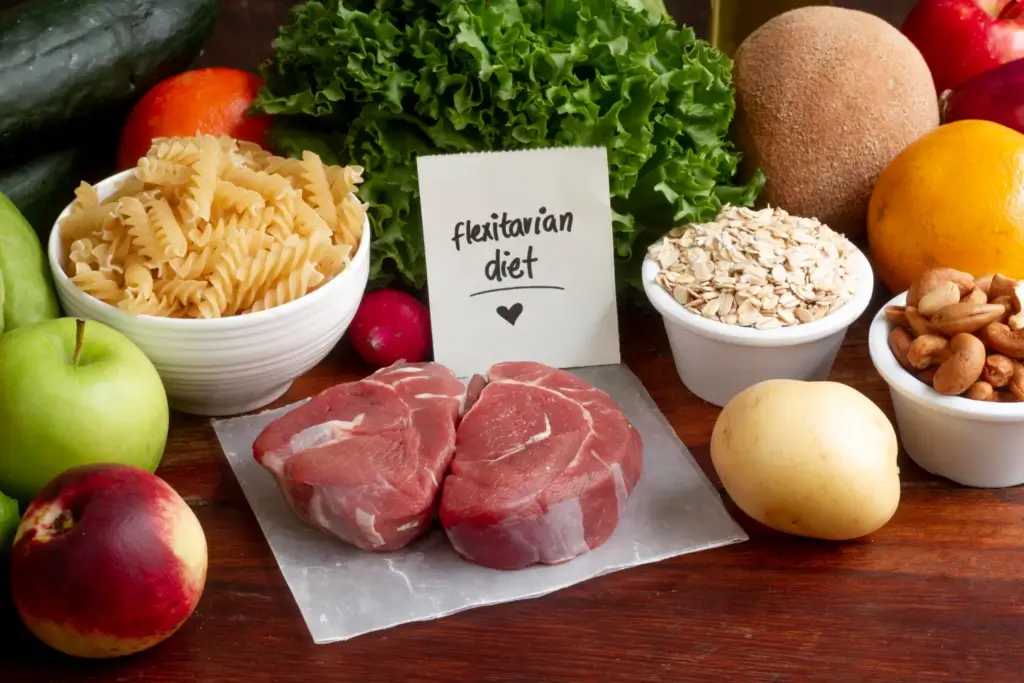In recent years, protein has become the cornerstone of effective weight management and fitness transformation. Whether your goal is to lose fat, build lean muscle, or simply boost energy, understanding the best protein for weight loss and muscle gain is crucial.
When I personally began prioritizing protein swapping sugary breakfasts for eggs and Greek yogurt I noticed an incredible difference. My hunger stayed controlled for hours, my workouts felt stronger, and within four weeks, I had dropped almost 6 pounds of fat while increasing muscle definition.
Let’s explore why protein plays such a powerful role in both fat loss and muscle development, and how you can use it to transform your own fitness journey.
1. What Protein Does in Your Body
Protein is more than just a nutrient—it’s a biological building block that repairs tissues, produces hormones, and supports metabolism.
When you consume protein, your body breaks it into amino acids, which fuel muscle repair, cell regeneration, and even immune function.
Research from the National Institutes of Health (NIH) highlights that higher protein intake can increase metabolism and reduce hunger hormones, making it a vital tool for sustainable weight loss.
2. Protein and Weight Loss: The Science Explained
A high protein diet for fat loss works through three main mechanisms:
-
Reduced Appetite:
Protein boosts levels of peptide YY and GLP-1 hormones that promote satiety while lowering ghrelin, the hunger hormone. -
Higher Thermic Effect:
The body uses more energy digesting protein compared to carbs or fats, slightly increasing calorie burn throughout the day. -
Preserved Muscle Mass:
During calorie restriction, protein protects lean tissue, ensuring the weight you lose comes mostly from fat, not muscle.
Studies have shown that diets rich in protein lead to greater fat loss and improved body composition compared to low-protein diets. For instance, individuals consuming 1.2 – 1.6 g of protein per kilogram of body weight experience better fat-to-muscle ratio improvements.
For further reading, see the Health and Fitness Care.

3. Protein and Muscle Growth: Building Lean Strength
To grow muscle, your body must synthesize more protein than it breaks down a process called muscle protein synthesis (MPS).
Consuming adequate protein after resistance training accelerates recovery and muscle building. The optimal protein intake for muscle gain generally falls between 1.6–2.2 g per kg of body weight per day.
Timing matters, too. The best time to eat protein for muscle building is within 30–60 minutes after your workout, though spreading protein evenly throughout the day also supports continuous repair.
When I started drinking a post-workout whey shake followed by a balanced meal, I noticed faster recovery and visible muscle tone within two weeks proof that timing and consistency really matter.
4. Best Sources of Protein (Animal & Plant-Based)
The key to a high protein diet for fat loss and muscle growth lies in variety. Here’s a look at the best protein foods for weight loss (female and male) audiences alike:
| Food Source | Protein per Serving | Type |
|---|---|---|
| Chicken breast (100 g) | 31 g | Animal |
| Salmon (100 g) | 25 g | Animal |
| Eggs (2 large) | 12 g | Animal |
| Greek yogurt (1 cup) | 20 g | Animal |
| Lentils (1 cup, cooked) | 18 g | Plant-based |
| Tofu (100 g) | 8 g | Plant-based |
| Chia seeds (2 tbsp) | 5 g | Plant-based |
Plant-based eaters can still achieve strong results with plant-based protein for muscle growth, combining sources like lentils, chickpeas, quinoa, and nuts for a full amino-acid profile.
Also read: 10 Best Weight Loss Foods to Burn Fat Fast
5. How Much Protein Do You Really Need?
The daily protein needs calculator (such as on MyFitnessPal) can help you customize your intake.
As a general rule:
-
Sedentary adults: 0.8 g per kg
-
Active adults: 1.2 – 1.6 g per kg
-
Athletes/bodybuilders: 1.6 – 2.2 g per kg
For example, a 150-lb (68 kg) person aiming for muscle gain should consume 110–150 g of protein daily.
If you struggle to hit your target through food alone, protein powder vs natural protein can be a smart supplement strategy just remember that whole foods should always come first.
6. When to Take Protein for Maximum Benefit
The best protein breakfast for weight loss includes eggs, Greek yogurt, or a protein smoothie.
Throughout the day, aim for 20–30 g per meal to maintain muscle protein synthesis.
Here’s a sample high-protein meal plan for beginners:
-
Breakfast: 2 eggs + Greek yogurt + berries
-
Lunch: Grilled chicken with vegetables and olive oil
-
Snack: Almonds or whey shake
-
Dinner: Baked salmon with broccoli
-
Evening: Cottage cheese or tofu stir-fry
For quick workouts, check out 5 Best Treadmill Workouts to Lose Belly Fat Fast at Home

7. Common Mistakes with Protein Intake
Even the best intentions can go wrong if you:
-
Rely too heavily on powders
-
Ignore hydration and fiber (causing digestion issues)
-
Skip variety—diversify animal and plant protein sources
-
Forget electrolytes during high-protein phases
Remember: balance is everything. A simple keto diet plan or low carb diet plan can complement your protein intake, but ensure overall nutrient adequacy.
Explore Keto Diet Plan for Weight Loss for meal ideas.
8. Real-Life Experience: My 30-Day High-Protein Challenge
In my own 30-day high-protein experiment, I aimed for 120 g of protein per day through eggs, yogurt, chicken, and protein shakes.
-
Week 1: Felt fuller and reduced cravings
-
Week 2: Noticed improved workout recovery
-
Week 3: Visible fat reduction—especially around the midsection
-
Week 4: Strength and energy peaked; overall weight loss of 5 lb
The biggest lesson? Protein fuels consistency. You don’t feel deprived—you feel empowered.
9. Conclusion: Why Protein Should Be a Daily Priority
Protein is the foundation of effective fat loss, sustainable muscle gain, and balanced energy.
Start small: add protein to your breakfast, track your daily intake, and stay hydrated.
Within weeks, you’ll experience leaner results, improved mood, and lasting strength.
For next-level results, explore:
FAQs: best Protein for Weight Loss and Muscle Gain
1. How much protein should I eat daily for muscle growth?
For most adults, 1.6 – 2.2 g per kg of body weight supports optimal muscle gain. Use a daily protein needs calculator to personalize your intake.
2. What’s the best protein for weight loss and muscle gain?
Whey, eggs, chicken, and Greek yogurt are excellent options. For vegans, plant-based protein for muscle growth like lentils, tofu, and quinoa works well too.
3. Can I lose fat on a high-protein diet?
Yes. A high-protein diet for fat loss reduces appetite and boosts metabolism, helping you shed fat while preserving muscle tissue.
4. When is the best time to eat protein for muscle building?
The best time to eat protein is within an hour after your workout, but spreading protein evenly across meals enhances absorption and results.
5. Are protein powders necessary for weight loss or muscle gain?
No, but they’re convenient. Whole foods should always come first, and protein powder vs natural protein should depend on your schedule and dietary needs.
6. What are easy high-protein meals for weight loss?
Try grilled chicken salads, Greek yogurt bowls, eggs with avocado, or tofu stir-fries. These easy high-protein meals for weight loss are quick, satisfying, and nutrient-dense.



